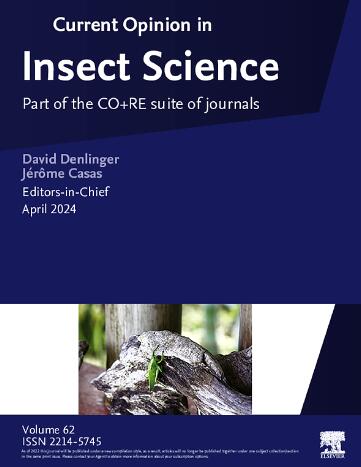Adapting to change: bee pollinator signatures in anthropized environments
IF 4.8
1区 农林科学
Q1 BIOLOGY
引用次数: 0
Abstract
Bees are essential pollinators for wild, ornamental, and agricultural plants, but human activities have disrupted their habitats, threatening their persistence. Although bees face numerous challenges in habitats heavily modified by human activities, certain species persist and thrive there. This review synthesizes recent literature on two types of traits that help bees survive in human-modified environments: preadaptive traits, which evolved before these environments existed, and adaptive traits, which have evolved in response to new conditions. This review highlights our limited understanding of adaptive traits and examines how trait combinations, including those influenced by epigenetics, contribute to bees’ success in these altered habitats. Additionally, we discuss the promising use of genomic tools to reveal signatures of adaptation in these important pollinators.
适应变化:人类环境中蜜蜂授粉者的特征。
蜜蜂是野生、观赏和农用植物的重要授粉者,但人类活动破坏了它们的栖息地,威胁着它们的生存。尽管蜜蜂在被人类活动严重改造的栖息地面临着诸多挑战,但某些物种仍能在那里生存和繁衍。这篇综述综述了帮助蜜蜂在人类改造的环境中生存的两类性状的最新文献:前适应性状和适应性状。前适应性状是在这些环境出现之前进化而来的,而适应性状则是为了应对新的条件而进化而来的。本综述强调了我们对适应性性状的有限了解,并探讨了性状组合(包括受表观遗传学影响的性状组合)如何有助于蜜蜂在这些改变了的栖息地中取得成功。此外,我们还讨论了利用基因组工具揭示这些重要授粉昆虫适应性特征的前景。
本文章由计算机程序翻译,如有差异,请以英文原文为准。
求助全文
约1分钟内获得全文
求助全文
来源期刊

Current opinion in insect science
BIOLOGYECOLOGYENTOMOLOGY-ECOLOGY
CiteScore
10.40
自引率
1.90%
发文量
113
期刊介绍:
Current Opinion in Insect Science is a new systematic review journal that aims to provide specialists with a unique and educational platform to keep up–to–date with the expanding volume of information published in the field of Insect Science. As this is such a broad discipline, we have determined themed sections each of which is reviewed once a year.
The following 11 areas are covered by Current Opinion in Insect Science.
-Ecology
-Insect genomics
-Global Change Biology
-Molecular Physiology (Including Immunity)
-Pests and Resistance
-Parasites, Parasitoids and Biological Control
-Behavioural Ecology
-Development and Regulation
-Social Insects
-Neuroscience
-Vectors and Medical and Veterinary Entomology
There is also a section that changes every year to reflect hot topics in the field.
Section Editors, who are major authorities in their area, are appointed by the Editors of the journal. They divide their section into a number of topics, ensuring that the field is comprehensively covered and that all issues of current importance are emphasized. Section Editors commission articles from leading scientists on each topic that they have selected and the commissioned authors write short review articles in which they present recent developments in their subject, emphasizing the aspects that, in their opinion, are most important. In addition, they provide short annotations to the papers that they consider to be most interesting from all those published in their topic over the previous year.
 求助内容:
求助内容: 应助结果提醒方式:
应助结果提醒方式:


